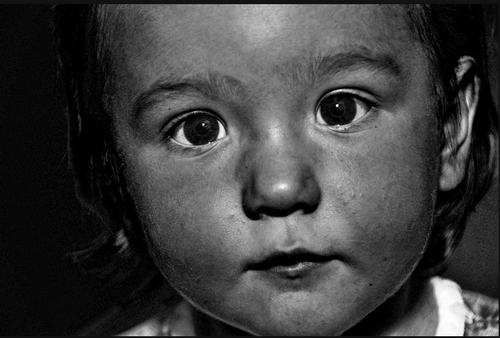
When I was a child, I remember asking my mom why - in some cases - children's pictures weren't published on the news or in newspapers. She'd simply reply that it was to conserve their innocence, to keep their identity protected from the rigid public world, and that there were laws to keep publishers from doing so. At that time I sincerely hoped my picture wouldn't end up in the Gazette, or elsewhere for that matter, since my innocence could have been at stake. I guess we can say that back then, innocence was just the right word to qualify my understanding of the issue.
Now, as a parent myself, my mom's voice and the conversation we once had has resurrected because of the emergence of a new self-publishing tool called Facebook. This virtual social network, seen as beneficial by some and diabolic by others, has steered my acquaintances and I through fiercely oppositional ethical deliberations. For my part, despite its communicational role creating a social fabric, I strongly believe that Facebook should not be used as a tool to expose children whatsoever because it violates the privacy rights of those without voice for the benefit of others who perhaps have narcissistic intentions.
In today's fast-lane society, virtual social networks as Facebook can ease the feasibility of maintaining relationships between family and friends regardless of time and distance. For instance, if a family decides - for any given reason, like a job opportunity - to establish itself abroad, Facebook will enable its members to effortlessly keep in touch with their relatives. By publishing pictures of themselves through the network in question, changes that kids go through as they grow up will not be missed by anyone. I mean, without the network, what are they supposed to do, write handwritten letters and send pictures every two weeks? But then again, this would be an isolated case and I guess it could be an undisputable reason for publishing pictures of your children on Facebook. However, complaisant people who relentlessly use this contractual tool should be informed that "facebooking" is not a private activity but is rather public. In other words, the saying "what goes on in the family, stays in the family" is not thoroughly applicable anymore.
When publishing pictures of your children on Facebook, you are literally robbing your children's choice to stay underground. In fact, as we can read directly from the Facebook website, new members must agree upon over one hundred different conditions and one of them reads as follows: "For content that is covered by intellectual property rights, like photos and videos ("IP content"), ... you grant us a non-exclusive, transferable, sub-licensable, royalty-free, worldwide license to use any IP content that you post on or in connection with Facebook."[1] In other words, when you sign-up to become a Facebook member, you must consent to the following criteria: primo, everything you publish becomes property of Facebook, and secondo, Facebook gains all rights to use all your published material in the way it intends to. Subsequently, this tends to shatter the argument, which stipulates that only your Facebook friends will have access to your publications. Ethically speaking, as parents and legal tutors, we must question our right to post pictures of our children on Facebook.
For my part, I choose to protect my two daughters' private identity and integrity by all means until they will have reached the age of reason. Now, some would think that these nebulous sign-up conditions stated above should definitely be repulsive enough to discourage any indulgent parent to pursue their quest of advertising their intimacy. But no, another reason explains why some people - who happen to be parents - decide to post pictures of their children on this social grid: narcissism. The public exposure of children on Facebook goes beyond the traditional family fabric where the parent-publishers mindlessly trade their kids' privacy for a self-centred goal. Indeed, according to research, facebooking can lead to incommensurable self-adoration. In a particular study targeting Canadian university students, researchers defined narcissism as follows: "... a pervasive pattern of grandiosity, need for admiration, and an exaggerated sense of self-importance."[2] Thus, the deemed narcissists, self-promoted, self-fulfilling, of grandiose love for oneself, in perpetual quest for higher self-esteem, and in brutal need of recognition will thereby use their children - by posting their pictures - as a means to meet their ends.
Ultimately, Facebook is a self-promoting tool, which can rob children of their innocence. Although its usefulness can be understood, I call upon parents and Facebook users to leave children out of this social network since too much is at stake. Once a private corporation owns your publications, who knows where your children's faces could end up? Isn't it crazy that, despite the fact that there are laws protecting our children's private identity, some parents purposely give their consent to go around them? Our children should undeniably be shielded by our parental responsibility to constantly and scrupulously act in their best interests. Taking risks contradicts this whole principle.
[1] https://www.facebook.com/terms.php
[2] http://www.theglobeandmail.com/news/technology/personal-tech/facebook-a-big-hit-with-narcissists-study/article1698694/
Leave a comment